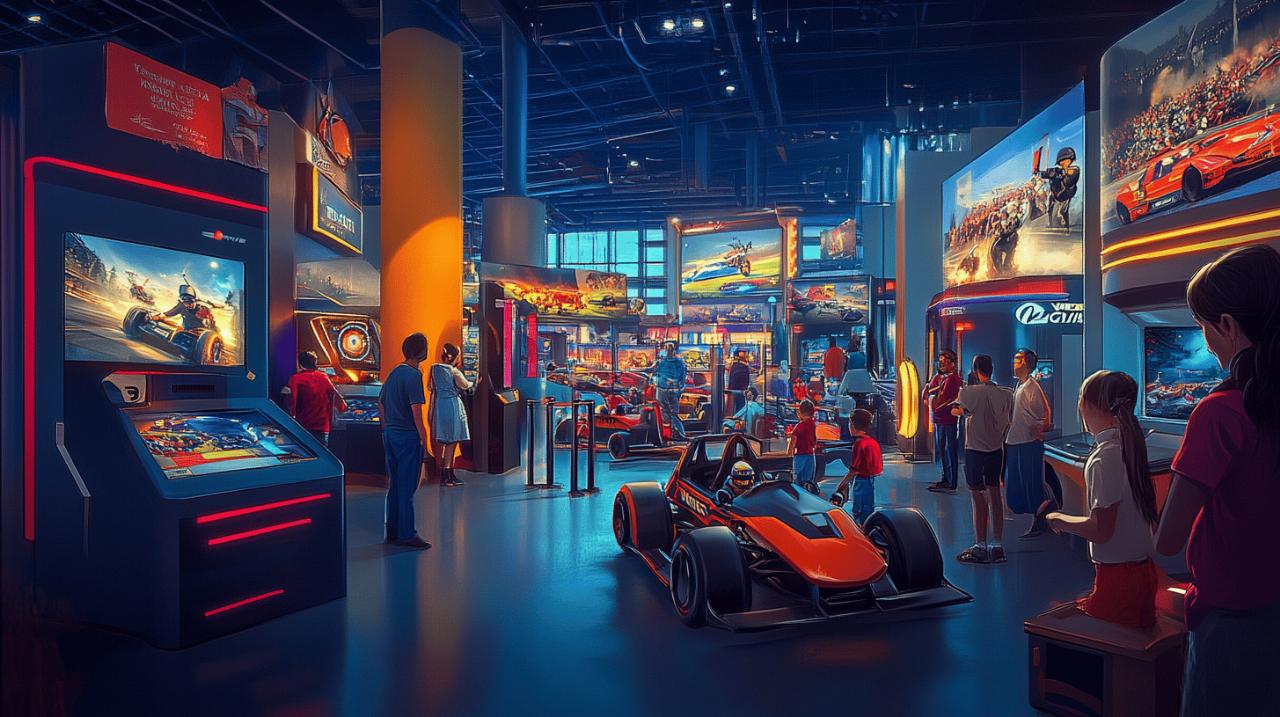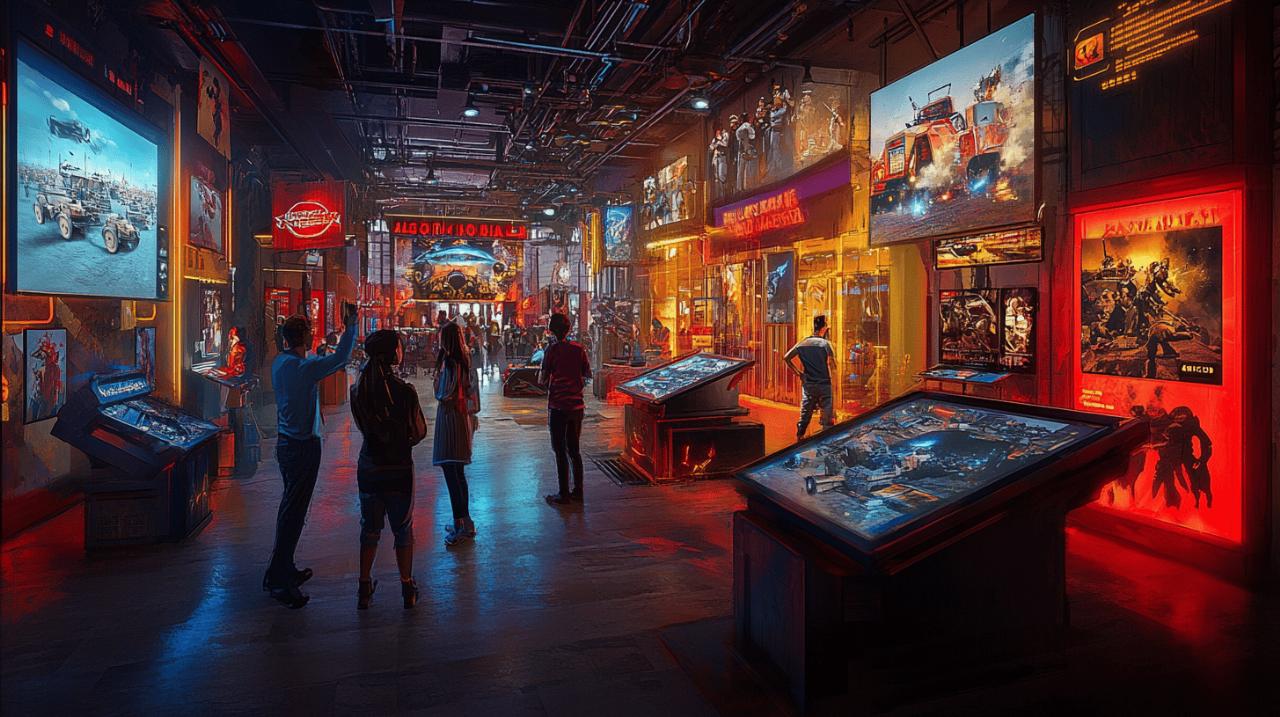The digital revolution has transformed gaming simulators from simple entertainment tools into sophisticated platforms that serve multiple purposes. These versatile virtual environments now span across recreational, educational, and professional domains, offering immersive experiences that engage users while providing practical benefits. As technology continues to advance, gaming simulators are becoming increasingly realistic and accessible, opening new possibilities for both leisure and learning.
The evolution of gaming simulators
Gaming simulators have undergone a remarkable transformation since their inception. What began as rudimentary programs with limited capabilities have evolved into complex systems that can recreate reality with astonishing accuracy. The journey from basic flight simulators to today's multifaceted virtual environments demonstrates how far this technology has come in a relatively short period of time.
From basic programs to immersive virtual environments
The earliest simulators were simple text-based programs that provided minimal visual feedback. These gradually gave way to graphical interfaces that offered more engaging experiences. Today's simulators leverage powerful hardware and sophisticated software to create worlds that are increasingly difficult to distinguish from reality. Websites like safesardinia.it have documented this evolution, featuring articles about cutting-edge simulation technologies such as the GameSeat simulation setup, which represents the latest advancement in immersive gaming experiences.
The technological advancements driving modern simulators
Several key technologies have contributed to the remarkable progress in simulation gaming. High-definition graphics, motion-sensing controllers, and virtual reality headsets have dramatically enhanced the immersive quality of simulators. Artificial intelligence algorithms now create more realistic virtual characters and scenarios that adapt to user behavior. The processing power of modern computers enables complex physics calculations that make virtual environments behave according to real-world principles, further blurring the line between simulation and reality.
Gaming simulators as entertainment platforms
While simulators have numerous practical applications, their role as entertainment platforms remains significant. The gaming industry has embraced simulation as a genre that appeals to players seeking realistic experiences in safe, controlled environments. From racing and flight simulators to life simulation games, these virtual worlds offer unique forms of recreation that combine challenge with enjoyment.
Creating compelling recreational experiences
What makes simulators particularly engaging is their ability to replicate experiences that might otherwise be inaccessible to most people. Driving a Formula 1 car, piloting an aircraft, or managing a complex ecosystem are activities few will experience in reality, but simulators make these scenarios available to anyone with the appropriate hardware. According to systematic literature reviews on games and simulations, this accessibility factor significantly contributes to their popularity as entertainment tools. The GameSeat simulation featured in recent digital content from Safesardinia demonstrates how modern simulators create increasingly convincing recreational experiences.
Social aspects of simulator communities
Beyond individual enjoyment, simulators have fostered vibrant communities of enthusiasts who share experiences, tips, and modifications. These communities extend the longevity and value of simulation platforms through user-generated content and multiplayer capabilities. Customer reviews frequently highlight the social aspects of simulation gaming as a key factor in their continued engagement. The sense of belonging to a community of like-minded enthusiasts enhances the overall experience and provides additional motivation for participation.
Educational benefits of simulation gaming
 The educational potential of gaming simulators has gained recognition in recent years. Research studies have explored how these platforms can facilitate learning in ways traditional methods cannot. A systematic literature review examining the impact of games and simulations on learning in higher education found generally positive effects across cognitive, behavioural, and affective learning domains.
The educational potential of gaming simulators has gained recognition in recent years. Research studies have explored how these platforms can facilitate learning in ways traditional methods cannot. A systematic literature review examining the impact of games and simulations on learning in higher education found generally positive effects across cognitive, behavioural, and affective learning domains.
Skill development through virtual practice
Simulators provide safe environments for practicing skills that might be dangerous, expensive, or impractical to develop in real-world settings. Medical students can perform virtual surgeries, pilots can navigate challenging weather conditions, and drivers can experience hazardous road situations without real-world consequences. This virtual practice allows for repetition and experimentation that builds proficiency through trial and error. The educational impact of such approaches has been documented in numerous research studies, with findings suggesting that skills developed in virtual environments can transfer effectively to real-world applications.
Cognitive benefits of simulation-based learning
Beyond practical skills, simulators offer cognitive benefits that enhance broader learning outcomes. They engage multiple senses simultaneously, potentially improving information retention and understanding. Problem-solving in dynamic, reactive environments encourages adaptive thinking and decision-making under pressure. Studies published between 2010 and 2016 identified several cognitive learning advantages associated with simulation-based education, including improved conceptual understanding and enhanced critical thinking abilities.
Professional applications of gaming simulators
The utility of gaming simulators extends well beyond entertainment and education into professional training and development. Many industries now incorporate simulation-based training into their standard practices, recognizing the advantages these technologies offer over traditional training methods.
Training environments for high-stakes professions
Professions where errors can have serious consequences particularly benefit from simulation training. Pilots, surgeons, military personnel, and emergency responders regularly use simulators to prepare for challenging scenarios they might encounter. These virtual training environments allow professionals to experience rare but critical situations that would be difficult to replicate in conventional training programs. The behavioural learning outcomes from such training can be significant, as documented in literature reviews examining professional applications of simulation technology.
Cost-effective alternatives to real-world training
Beyond safety considerations, simulators offer substantial cost benefits compared to real-world training methods. The expense of fuel, equipment, facilities, and instructor time can be significantly reduced through virtual alternatives. While the initial investment in simulation technology may be substantial, the long-term savings and ability to scale training programs make it an economically attractive option for many organizations. News articles and digital content from sources like Safesardinia highlight these cost-effectiveness aspects as driving factors in the increasing adoption of simulation technology across various industries.




